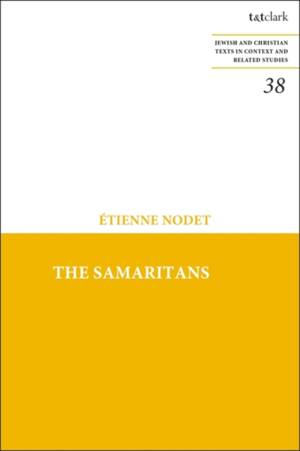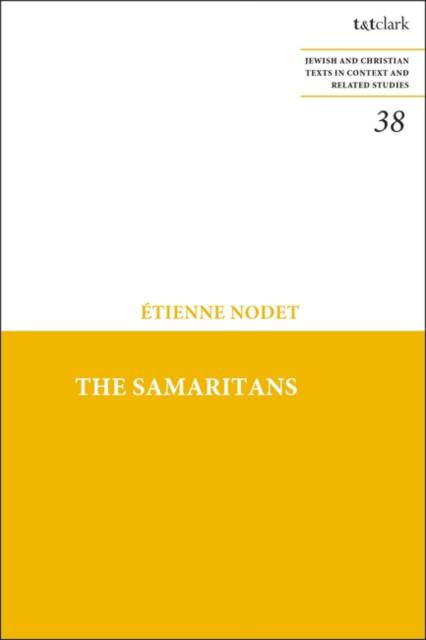
- Retrait gratuit dans votre magasin Club
- 7.000.000 titres dans notre catalogue
- Payer en toute sécurité
- Toujours un magasin près de chez vous
- Retrait gratuit dans votre magasin Club
- 7.000.0000 titres dans notre catalogue
- Payer en toute sécurité
- Toujours un magasin près de chez vous
195,45 €
+ 390 points
Description
Etienne Nodet examines the Samaritans and their religion, using Jewish and Christian sources, including rabbinic literature and the latest archaeology. Nodet tells the story of the Samaritans and their religion, showing how they were faithful to a classical form of monotheism.
Nodet traces the Samaritan story from more recent to more ancient times. He begins by looking at the importance of the Samaritans in the time of Josephus and the New Testament, taking in the area formed by Galilee, Samaria, and Judea and recognizing how this corresponds approximately to Canaan at the time of Joshua, between the Jordan and the Mediterranean. He then examines the account of 2 Kings 17, which shows the Samaritans as descendants of the settlers sent by the Assyrians, who were initiated to a certain Yahwism after the fall of the kingdom of Israel (North) in 721 BC. Next Nodet looks at the time of the Maccabean crisis, when the Samaritans separated from the Jews, showing how before then there was a peaceful coexistence.
Finally, Nodet turns to the Persian period, showing how after the return from exile there was a restoration of the Babylonian-derived form of religion, which the local Israelites (including the Samaritans) opposed. Nodet contends that, as such, the Samaritan religion, with its succession of high priests up to the present day, and is of 'immemorial permanence', linking to the earliest worship of YHWH in Israel.
Nodet traces the Samaritan story from more recent to more ancient times. He begins by looking at the importance of the Samaritans in the time of Josephus and the New Testament, taking in the area formed by Galilee, Samaria, and Judea and recognizing how this corresponds approximately to Canaan at the time of Joshua, between the Jordan and the Mediterranean. He then examines the account of 2 Kings 17, which shows the Samaritans as descendants of the settlers sent by the Assyrians, who were initiated to a certain Yahwism after the fall of the kingdom of Israel (North) in 721 BC. Next Nodet looks at the time of the Maccabean crisis, when the Samaritans separated from the Jews, showing how before then there was a peaceful coexistence.
Finally, Nodet turns to the Persian period, showing how after the return from exile there was a restoration of the Babylonian-derived form of religion, which the local Israelites (including the Samaritans) opposed. Nodet contends that, as such, the Samaritan religion, with its succession of high priests up to the present day, and is of 'immemorial permanence', linking to the earliest worship of YHWH in Israel.
Spécifications
Parties prenantes
- Auteur(s) :
- Editeur:
Contenu
- Nombre de pages :
- 174
- Langue:
- Anglais
- Collection :
- Tome:
- n° 38
Caractéristiques
- EAN:
- 9780567709660
- Date de parution :
- 07-09-23
- Format:
- Livre relié
- Format numérique:
- Genaaid
- Dimensions :
- 156 mm x 234 mm
- Poids :
- 421 g

Les avis
Nous publions uniquement les avis qui respectent les conditions requises. Consultez nos conditions pour les avis.






